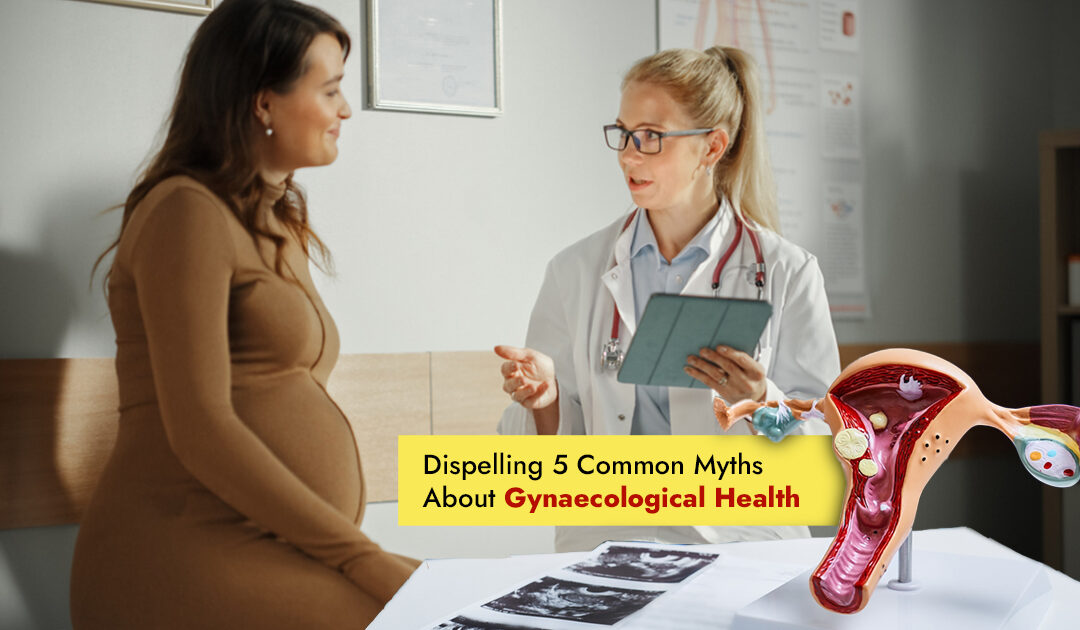Gynaecological health is a vital aspect of overall well-being for women, yet many myths and misconceptions surround it. These myths often lead to fear, stigma, and even delays in seeking proper medical care. To promote better understanding, it’s essential to address these misconceptions and encourage women to take control of their gynaecological health. Let’s bust five common myths and shed light on the facts.
Myth 1: Gynaecological Problems Only Affect Older Women
Fact: Gynaecological issues can affect women of all ages, not just older women. From the teenage years through menopause and beyond, women are susceptible to various conditions. Polycystic Ovary Syndrome (PCOS), endometriosis, and sexually transmitted infections (STIs) can affect women at any stage of life. For instance, PCOS is a common hormonal disorder that often starts during adolescence, while endometriosis typically affects women in their reproductive years. It’s essential for women of all ages to be proactive about their gynaecological health and seek regular check-ups.
Myth 2: Periods Are a Natural Part of Life, So There’s No Need for Gynaecological Check-ups
Fact: While menstruation is a natural and physiological process, that doesn’t mean it should be ignored when it comes to medical care. Abnormalities such as irregular periods, heavy bleeding, or severe pain could be signs of underlying issues like fibroids, cysts, or infections. Regular gynaecological consultations can help detect such problems early. Women should seek professional advice if they notice anything unusual in their menstrual cycle. Early detection is crucial in preventing minor issues from becoming serious conditions.
Myth 3: All Vaginal Discharge is Abnormal
Fact: Not all vaginal discharge is a cause for concern. In fact, vaginal discharge is a normal and healthy part of the female reproductive system. The body produces discharge to clean and protect the vagina. However, discharge that is excessive, foul-smelling, or an unusual color (like green or yellow) could be a sign of an infection or other medical issues. Conditions like bacterial vaginosis or yeast infections can cause these symptoms. If you notice abnormal discharge, consult a gynaecologist for an accurate diagnosis and treatment.
Myth 4: Home Remedies Can Cure All Gynaecological Problems
Fact: While home remedies may offer temporary relief for minor symptoms, they are not a cure for gynaecological problems. Issues such as infections, fibroids, or ovarian cysts require professional medical attention. Ignoring symptoms or relying on home remedies for too long can lead to more serious health problems. It’s essential to consult a gynaecologist for a proper diagnosis and effective treatment plan. Self-medication and delay in seeking treatment can complicate health conditions.
Myth 5: Endometriosis is a Rare Condition
Fact: Endometriosis is far more common than many people think. This condition occurs when tissue similar to the lining of the uterus grows outside of it, leading to pain, irregular periods, and even fertility issues. Endometriosis affects millions of women worldwide, yet many cases go undiagnosed due to misconceptions about the condition. If you experience severe pelvic pain, heavy periods, or pain during intercourse, it’s crucial to consult a gynaecologist. Early diagnosis and treatment can significantly improve quality of life for women suffering from this condition.
Take Control of Your Gynaecological Health
Understanding the facts about gynaecological health is the first step towards better well-being. Regular check-ups, open communication with your healthcare provider, and proper medical treatment are crucial for addressing any concerns. Don’t let myths and misconceptions stand in the way of your health.
If you have any questions or concerns about your gynaecological health, schedule a consultation with Dr. Seema, who can provide expert guidance and personalized care. Whether it’s routine check-ups or addressing specific symptoms, Dr. Seema is here to help you manage your health with confidence.

